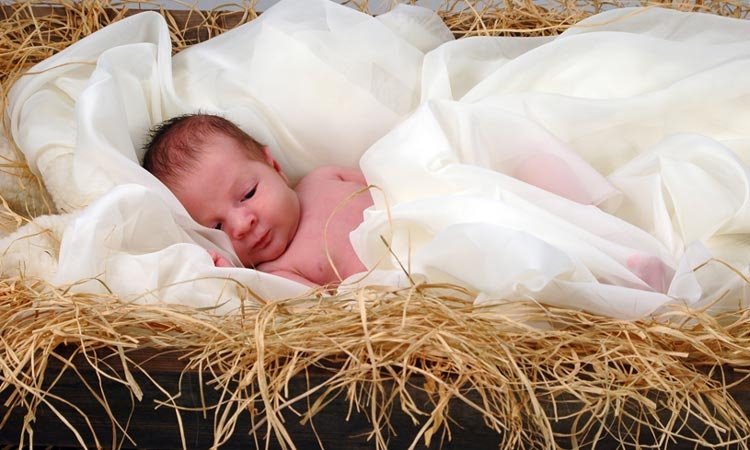She brought forth her firstborn Son, and wrapped Him in swaddling cloths, and laid Him in a manger, because there was no room for them in the inn.—Luke 2:7
The Lord of the universe could have picked anywhere for Jesus to be born. That raises the question of why God picked a humble dwelling where animals were housed and fed—possibly a stable, although it could have been a cave or even a guest room in a relative’s house.
The room might have been full of sweet-scented hay—dried flowers and grass that had flourished in sunny summer meadows before being cut down from their beauty—like Jesus Himself was. In Japan, traditional floors are made from freshly harvested rice grass called tatami because the smell is so sweet. Perhaps God savored the fragrance as well. The hay also reminds us of the transitory nature of life.
At His birth, Jesus was surrounded by simple creatures—maybe a donkey, birds, a cow, goat, or sheep. During His life, Jesus would seek the lowly and eventually tell His followers to preach the gospel to every creature. 1 He ministered to the meek and brokenhearted, the prostitutes, the tax collectors, the fishermen, the children—those at the lower end of society. He came to seek and save the lost. He transformed men who were like beasts of burden into sons and daughters of God.
Then there were His earthly parents: a humble hewer of wood and a young girl. Jesus could have been born into an illustrious family, but He wasn’t. Jesus would follow in His father’s steps until He was 30, transforming raw timber into useful vessels, like He still transforms today those who come to Him seeking a new life.
A ragtag band of shepherds came to view the newborn Jesus at the invitation of angels. 2 God could have had the angels bid anyone come to the stable. He could have called the high priests, scribes, the doctors of the law, or the Pharisees, but He didn’t. God sent the heavenly host to some of the people who were considered the least religious, due to the fact that their job of tending sheep often kept them from observing many of the important rituals of their faith. Perhaps the angels invited the shepherds because they were the humble ones, the lost sheep whom Jesus had come to save.
The angels told the shepherds that this baby was not merely another newborn, but He was the Promised One who would bring good news to the meek; who would bind up the brokenhearted; who would proclaim liberty to the captives, and the opening of prisons to them that are bound. 3
As they approached, they saw a young woman silently gazing at her child in a way that only a mother can. Although there is no record of the shepherds giving gifts to the baby, I don’t believe they would have come empty-handed. Perhaps they carried the offerings of their vocation: milk to drink, cheese to eat, wool to warm Him, a piece of lamb for a stew. Today in the mountains of Italy, shepherds bring such presents to new mothers.
As the shepherds went on their way, they rejoiced in the knowledge that this Boy, born of simple folk and in poverty, just like them, was to be the redeemer of the humble—those people of good will, on whom the angel had given a blessing of peace.
God couldn’t have picked a better place for the birth of His Son, the Messiah—Jesus. Even though it might have seemed humiliating to be born in such simple surroundings, it fulfilled God’s plan. He often works in mysterious ways to perform His wonders. 4 He did it then and still does it now.
